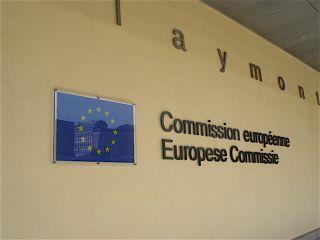In the meantime, even richer euro countries are getting into troubles. Look at Germany, the strongest of all. Proposals are ready to put national parliaments under the guardianship of non-elected eurocrats in the Berlaymont building who will decide whether national budgets are okay or not. Democracy is on a slippery slope.
How long will it take before ‘Brussels’ dares to understand, that the core of the euro crisis is the euro itself! It is not done in the corridors of the European institutions to show any doubt about the euro or to talk about its possible end. The euro is for eurocrats and europhiles more than a currency, it is a religion. And heretics are utterly disgraced and/or ignored!
Hans-Olaf Henkel, once the President of the Bundesverband der Deutschen Industrie (BDI), the Federation of German Industries, shows noteworthy courage. In his BDI period he ‘sold’ the euro to his compatriots as a necessity for Germany’s future and worthy to replace the popular German currency, the D-Mark. Gradually he discovered that the introduction of the euro was a big mistake.
Recently, Henkel wrote a book
Rettet unser Geld! Deutschland wird ausverkauft – Wie der Euro-Betrug unsere Wohlstand gefärdet (Save our Money! Germany in sales – How the Euro-swindle endangered our prosperity). He doesn’t want to go back to the 17 national currencies; he advocates a split of the eurozone: a northern part with Germany, Finland, Netherlands, Austria, Slovakia, Estonia and Slovenia; and the others, the weaker euro countries, under guidance of France, in a southern zone. It doesn’t look practicable, especially because of the position of France in Henkel’s idea.
On the other hand, ‘Brussels’ (read the European Commission and the European Parliament) has no better recipe for the crisis than more bureaucracy, more centralisation, more technocracy with intolerable downgrading or even elimination of national democratic process as effect. Therefore, it is perhaps not such a bad idea to take Henkel’s way of thought a bit more seriously. It looks better than simply create eurobonds as a bonus for countries that never really cared about their spending and counted on the more disciplined countries to pay the bill. Or the approach of pooling excess Eurozone debt as a euro survival route, proposed in an EP Committee. A concern that countries currently financing themselves at low rates would be reluctant to participate was not a problem for the MEP’s. ‘Now it is only about the survival of the euro’.
In the meantime the same euro causes recession in the eurozone, with political and social unrest as result. Not only in Greece, Spain, Ireland, Portugal and Italy, also in the UK, France and Belgium. It is not at all surprising to read in a recently published EU social issues survey, that there has been a substantial fall in the number of people who think that the EU has a positive impact on employment and social policy. Public support for EU social policy has ‘deteriorated dramatically’. A majority of European citizens no longer believe in a positive effect for them from the ’European project’. But who cares about citizens? It is the euro that counts!






